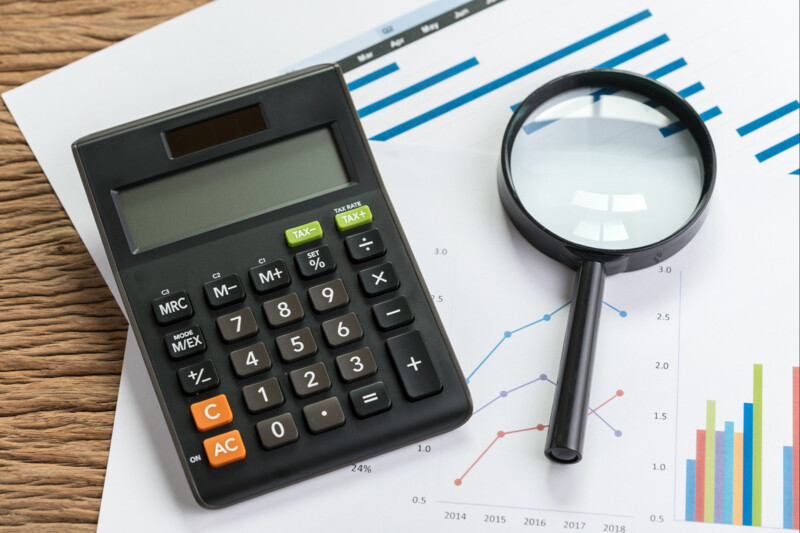La bonne marche d’une petite entreprise dépend de plusieurs facteurs et la tenue d’une comptabilité dans les règles de l’art en fait partie. Dans une TPE, le dirigeant se doit d’avoir plusieurs casquettes. Difficile de combiner le commercial, le travail manuel, le management et l’administratif ! La comptabilité, souvent jugée rébarbative par les chefs d’entreprise, est parfois confiée à une secrétaire ou un conjoint collaborateur. Mais ces derniers ne possèdent pas nécessairement les compétences pour établir des comptes annuels ou certaines déclarations fiscales. L’intervention d’un expert-comptable est alors requise. Faire appel à un cabinet comptable pour gérer la totalité de sa comptabilité n’est pas une obligation. Il est tout à fait possible d’en prendre une partie en charge. Dans ce cas, l’ensemble des travaux comptables doit être effectué de façon extrêmement rigoureuse. Nous allons voir comment optimiser sa comptabilité pour gagner du temps et ainsi pouvoir se consacrer à une activité plus productive.

Les tâches comptables
Dans les grandes entreprises, la fonction comptable est assurée par un service spécialisé, composé de comptables et de chefs comptables. Dans les petites entreprises, les tâches sont moins complexes, mais restent sensiblement les mêmes. Il s’agit, dans les grandes lignes, de :
- classer les pièces (factures, tickets de caisse…) ;
- numéroter les factures fournisseurs, les pièces de banque et de caisse ;
- saisir toutes les pièces, soit sur tableur, en attente, soit directement dans un logiciel de comptabilité ;
- enregistrer les recettes et les dépenses en banque et en caisse ;
- faire le rapprochement bancaire.
Si l’entreprise a des salariés :
- établir les fiches de paie ;
- réaliser les déclarations sociales.
Et, en fin d’exercice :
- exécuter les travaux d’inventaire ;
- effectuer les déclarations fiscales ;
- clôturer les comptes annuels.
L’optimisation de sa comptabilité
Bien tenir sa comptabilité permet de suivre de près l’évolution de sa petite entreprise, de connaître sa rentabilité en temps réel et donc de mieux anticiper les actions à venir. Pour cela, il convient de procéder avec méthode.
Préparer le travail
Ne laissez jamais la paperasse s’accumuler. Munissez-vous de pochettes et de classeurs. Au fur et à mesure de leur arrivée, les pièces justificatives doivent être vérifiées et triées par nature : factures d’achats, de ventes, frais, tickets de caisse, relevés de compte, talons et remises de chèques, etc. Attribuez ensuite à chaque facture fournisseur un numéro d’ordre.
Mettez en place un maximum de prélèvements automatiques, de LCR, de virements permanents : loyer, eau, électricité, téléphone, impôts, charges, fournisseurs…
On peut accélérer le travail de saisie en pré-totalisant c’est-à-dire en additionnant les sommes correspondant à un même type d’enregistrement. Par exemple, passer une écriture unique pour toutes les ventes de la journée.
Utiliser Excel
Excel vous permet de créer des tableaux récapitulatifs ou prévisionnels simples et accessibles à tous. Ce sont de véritables tableaux de bord, très utiles pour analyser la situation à un moment précis.
Grâce aux différentes colonnes du tableur, vous avez la possibilité de ventiler à votre guise : date d’échéance, mode de règlement, numéro de chèque, type de produit vendu, montant de la TVA, etc.
Vous visualiserez ainsi d’un simple coup d’œil vos recettes réalisées et vos dépenses à venir.
Investir dans un logiciel de comptabilité
Si vous avez utilisé Excel au préalable, il faudra ensuite reporter les écritures dans un logiciel spécifique plus élaboré. Il en existe de nombreux sur le marché. Veillez cependant à bien le choisir. La taille de l’entreprise et la nature de l’activité doivent guider votre choix.
Aucun logiciel n’est parfaitement adapté. Tout d’abord, faites un point sur vos besoins. Certaines fonctionnalités ne sont pas toujours indispensables. Optez pour la simplicité et la facilité d’utilisation.
Afin de limiter les erreurs de saisie, préférez les logiciels « tout-en-un ». Ces outils automatisent les écritures de la facturation à l’enregistrement dans les journaux, puis des journaux au compte de résultat et au bilan. Les données sont centralisées, ce qui facilite la transmission à l’expert-comptable. Les relevés bancaires sont récupérés directement auprès de la banque et comptabilisés.
Certains fabricants proposent un essai gratuit de leur logiciel. Profitez-en pour les comparer.
Tenir sa comptabilité au quotidien
L’enregistrement des opérations au jour le jour vous semble peut-être chronophage, mais cela vous évitera de vous retrouver submergé en fin de mois ou en fin d’année. Vous risqueriez aussi d’oublier certaines échéances impératives, comme la déclaration mensuelle de TVA, par exemple. Avoir une comptabilité suivie donne une excellente visibilité de son activité. Toutes les dernières informations sont sous vos yeux. Vous savez exactement où vous en êtes au point de vue financier.
Le mieux est d’instaurer une routine : soit, en fin de journée, soit en fin de semaine, consacrez systématiquement une heure ou deux au traitement comptable.
Se faire accompagner
Il est préférable de demander conseil à un expert-comptable pour toutes les questions d’ordre juridique, social et fiscal. En effet, l’étendue des obligations des entreprises est telle qu’en prendre connaissance à chaque changement vous ferait perdre un temps précieux.
À part si la personne responsable de la comptabilité possède le diplôme adéquat, faire établir les comptes annuels par un professionnel vous garantit d’être en conformité avec la loi fiscale.
Il en va de même pour les bulletins de salaire et tout le côté social. En cas d’erreur, les salariés lésés peuvent vous envoyer devant les Prud’hommes, ce qui vous porterait préjudice.
Optimiser sa comptabilité revient donc, non seulement à utiliser des outils permettant une automatisation maximale, mais également à s’entourer d’experts en la matière.
